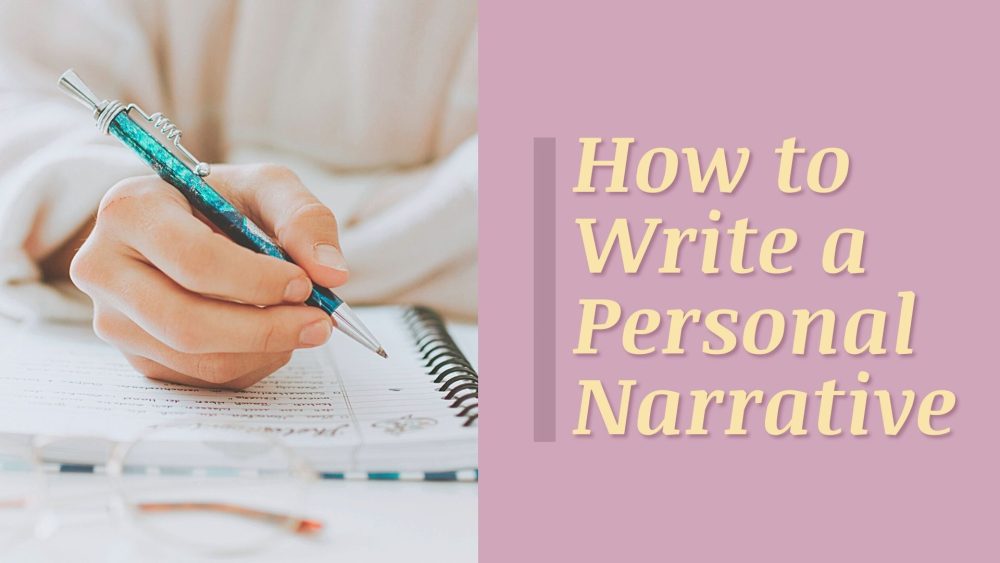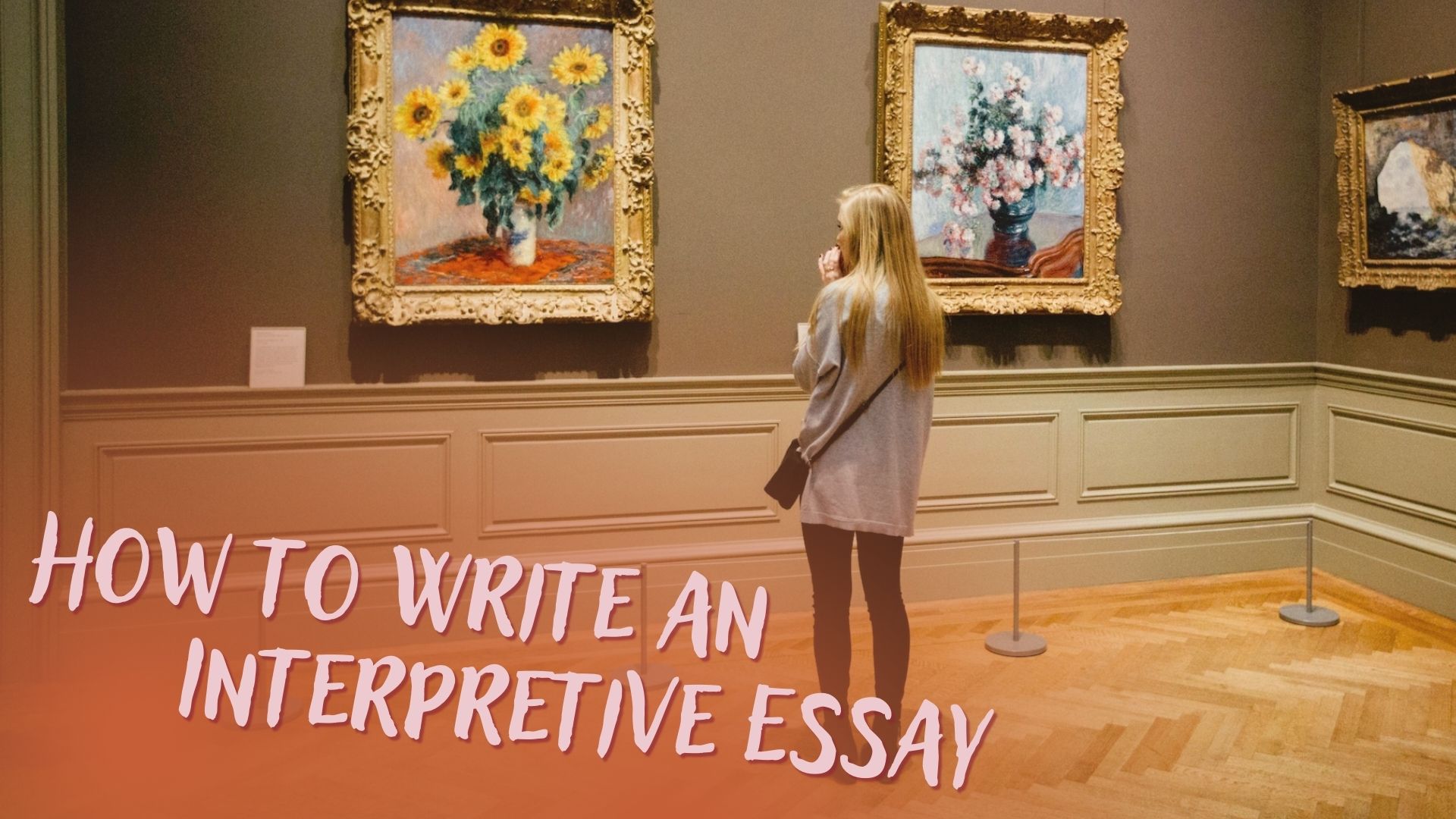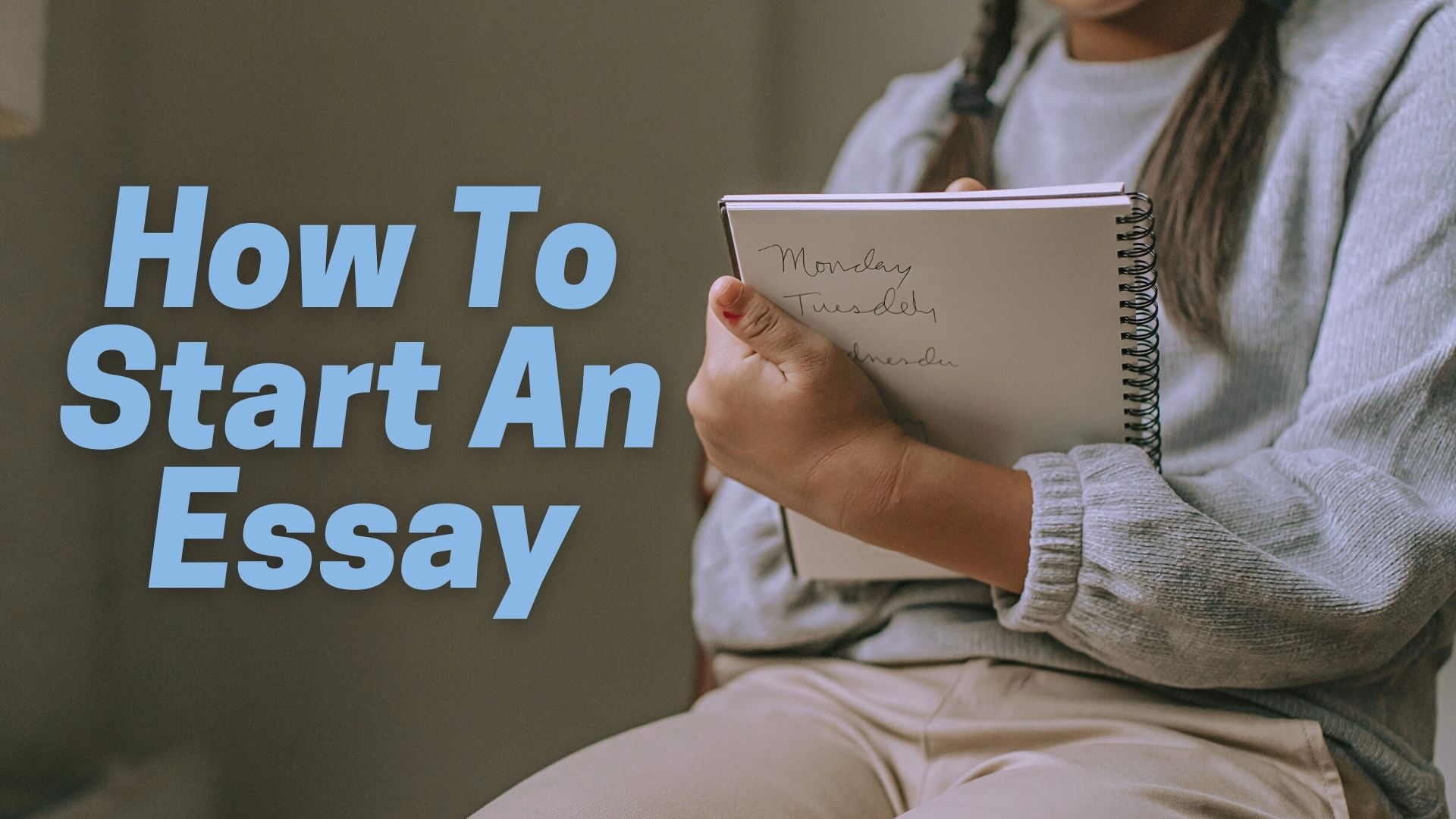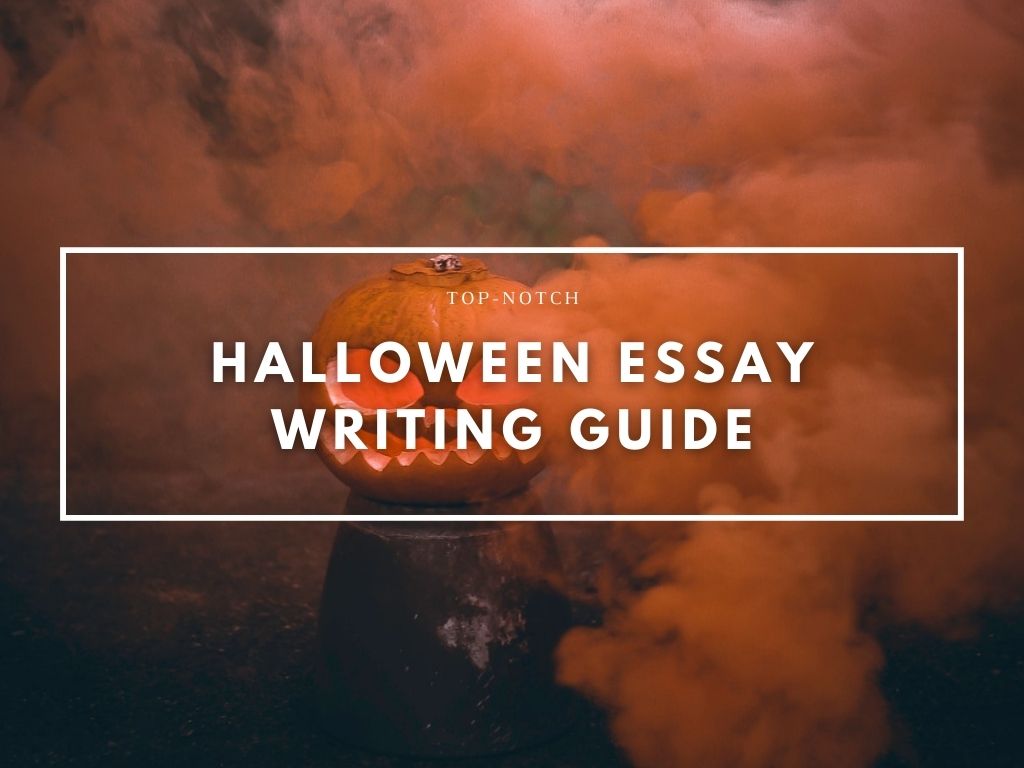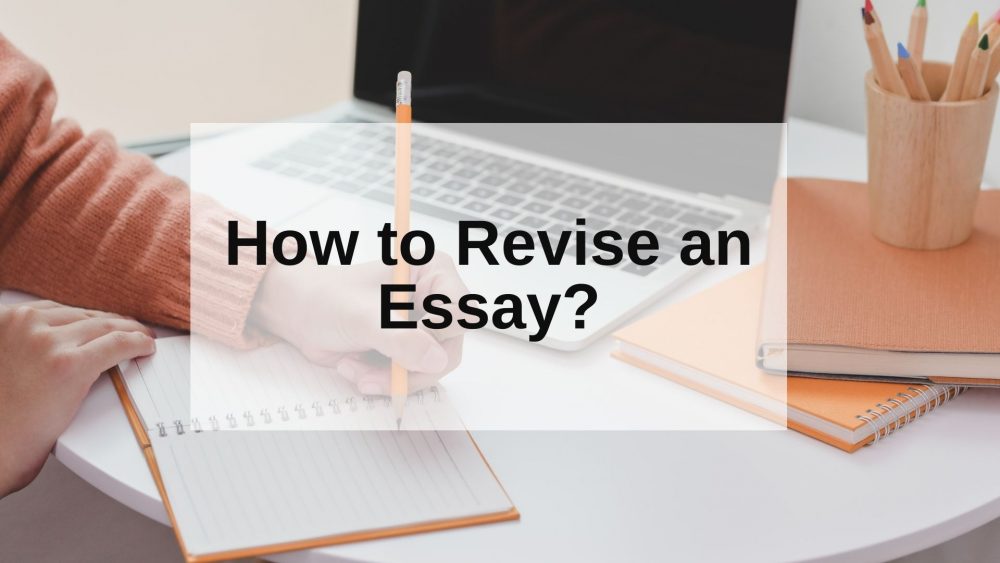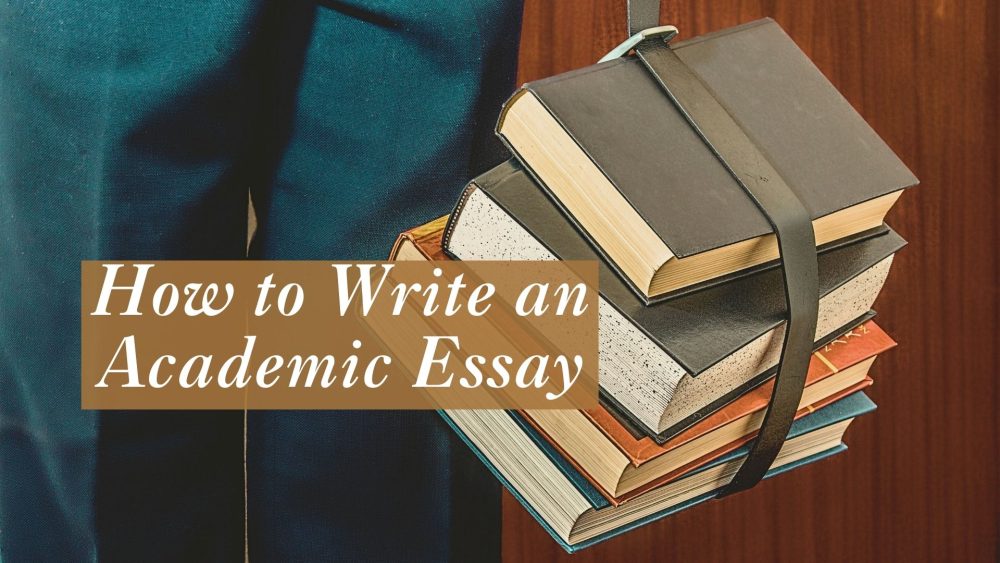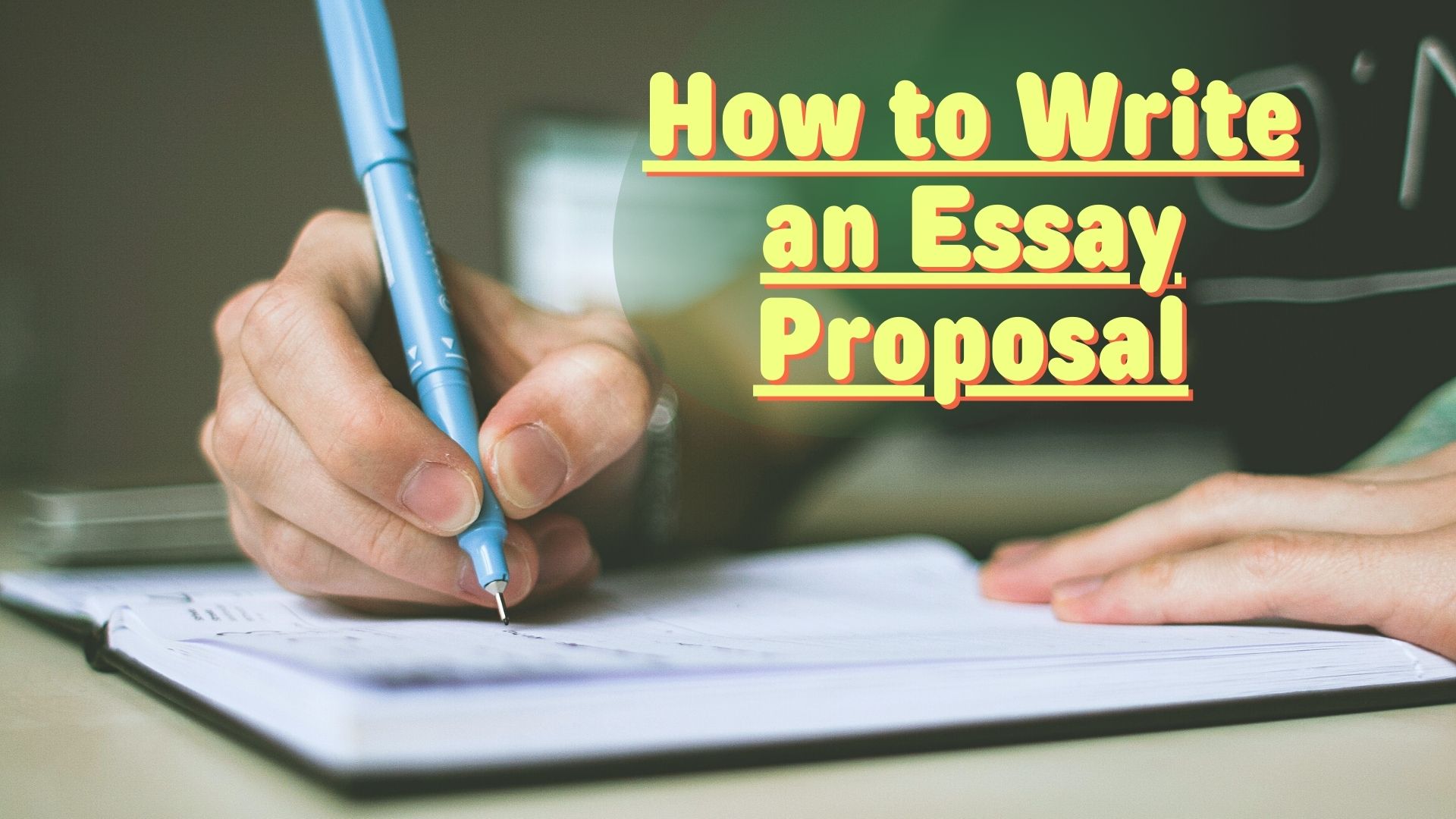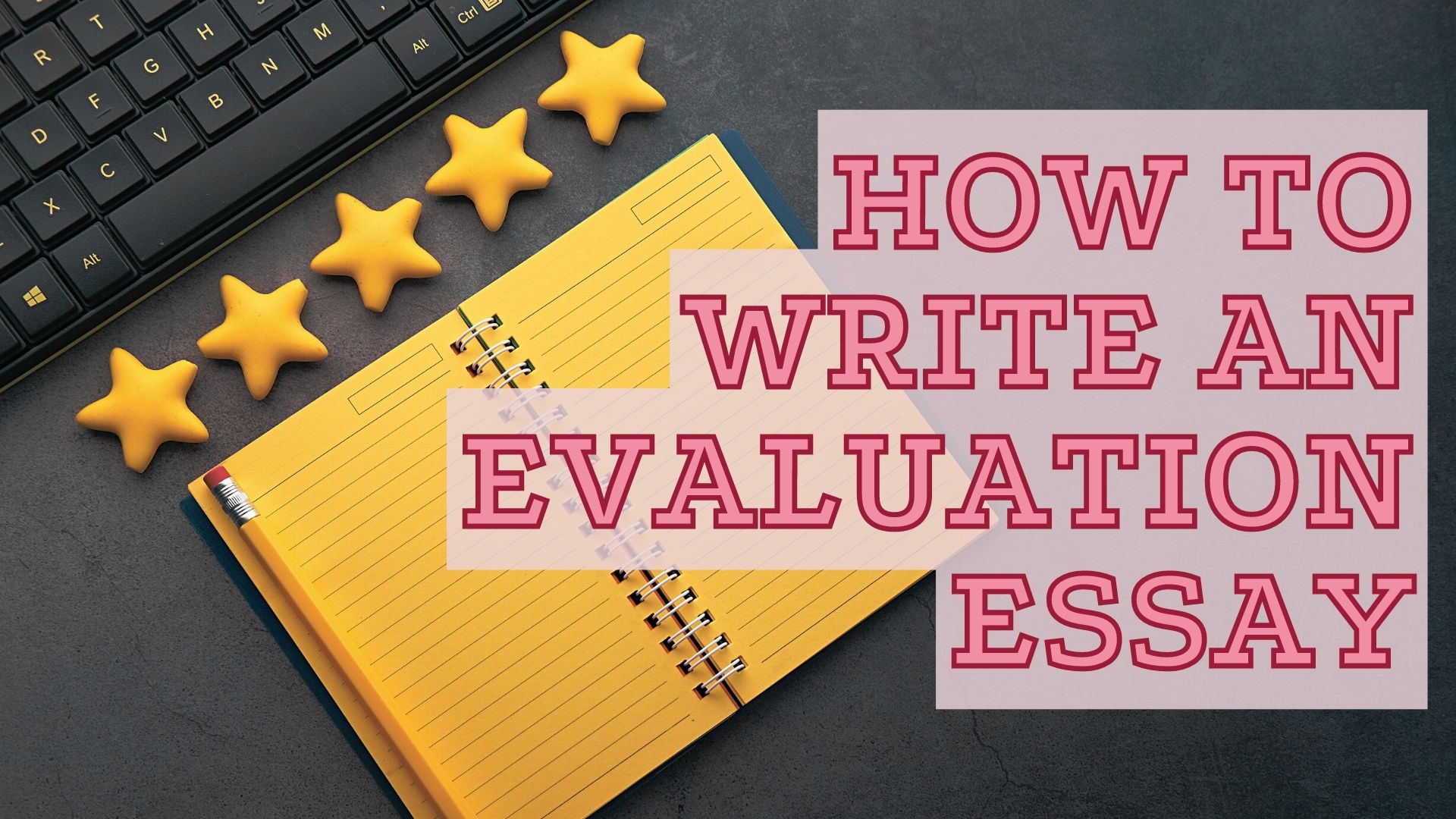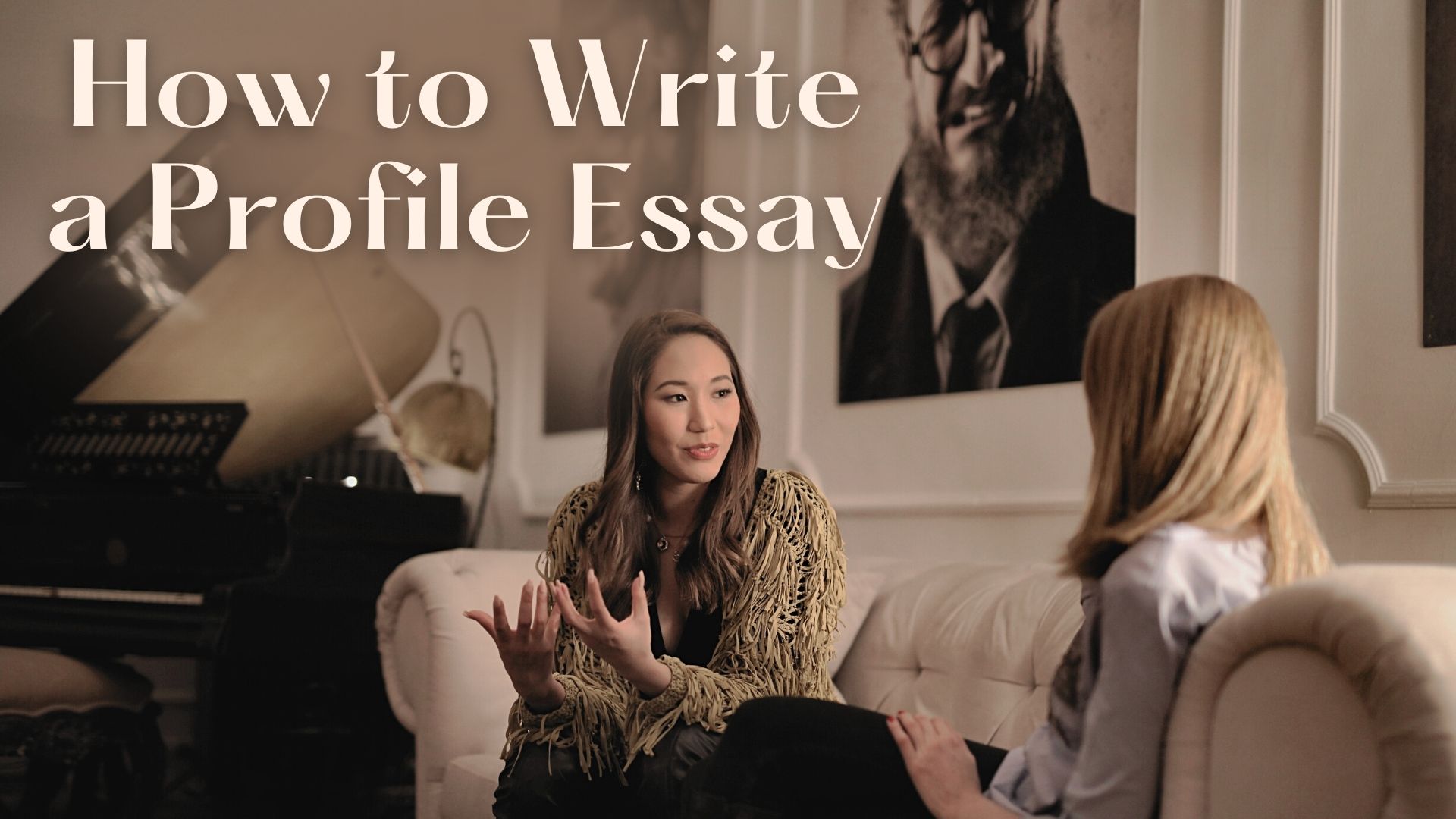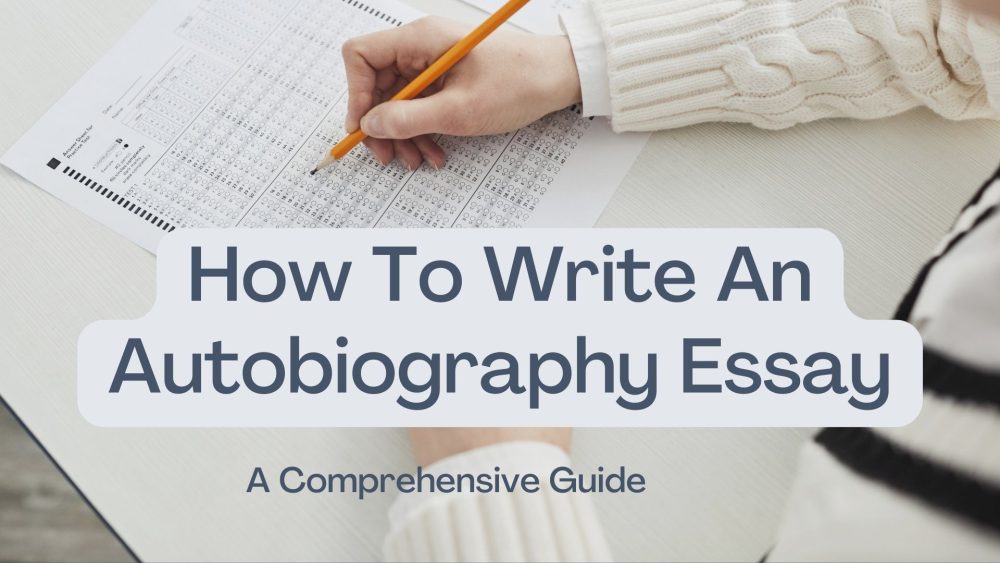If you are reading this article, you are probably trying to figure out how to write a personal narrative and do a great job. Truth be told, coming up with interesting ideas and then writing your own personal story is not as easy as it sounds. In most cases, students have never even heard about the personal narrative essay.
Unfortunately, your professor will expect you to have it ready by the deadline. If goes without saying that the grade you will receive on your work depends entirely on your ability to write an excellent personal story. It’s also worth noting that you may need to write a personal narrative as part of your college or university admissions process.
If you don’t know how to write such an essay, we are here to help. You will find all the relevant information about the personal narrative essay right here on this page. In addition, we will provide you with a helpful guide to writing such an essay, as well as some invaluable tips and advice. Finally, we will show you a sample personal narrative paper that will help you better understand how the final version of your essay should look like.
Table of Contents
What Is A Personal Narrative?
Every student should know what a personal narrative essay is and why it is important to know how to write one. So we will start with the basics: what is a personal narrative?
The personal narrative is a story about a personal experience that you choose to share with your audience. It is meant to present your understanding not only of yourself, but also of other people and/or the society in general.
Keep in mind that your audience should be able to relate to your story. In other words, you need to make sure you transform an otherwise ordinary experience into an insightful commentary.
But why is writing a personal story so important? Why would your teachers be interested in your personal life experiences? Well, learning how to write such an essay the right way can demonstrate that you can:
- Write a story correctly and include all the relevant components: the introduction, the plot, the characters, the setting, and the conflict.
- Come up with an argument, support your thesis and write a meaningful conclusion.
- Be an effective storyteller who can persuade his audience of the validity of your arguments.
- Use carefully crafted sentences to help your audience visualize the scene.
- Analyze your own life experiences and share them with others in a clear, logical and well-articulated paper.
- Be able to present your feelings, though process and even ideas to an audience.
Finally, it’s very important to realize that many colleges and universities require you to submit a narrative essay about one of your most important experiences or events. And yes, the admissions committee really does carefully read each essay. To get admitted to the school of your dreams, you need to write an extraordinary narrative paper.
Personal Narrative Format
Before we get to the part where we show you how to write a personal narrative essay for college, it’s time to talk about the personal narrative format. After all, this is an academic paper that should adhere to all relevant academic writing standards. If you school or professors don’t have other, more specific requirements, here are some of the most important things to keep in mind:
- You need to use one of the fonts that have been approved in the 7th edition of APA
- Each page needs to have a header with the page number
- The top, bottom, left, and right margins need to be one inch
- The paragraphs do not need to have any additional spacing
- You will need to create a cover page for your essay
- Your font needs to be double spaced
- The beginning of each paragraphs needs to be indented by one half inch
Again, these guidelines can be changed by your professor of by your school. If you have not been told otherwise, you should use standard APA formatting.
Structure Of A Personal Narrative
We know that this kind of essay may seem like an extremely difficult assignment. For some students, it really is. But, believe it or not, writing a narrative doesn’t have to be difficult. After your first paper, you’ll get a lot better at it. To help you understand exactly what you need to do, let’s talk about the overall structure of a personal narrative.
The good news is that this essay follows the already well-known 5 paragraph essay structure. You’ve probably used it dozens of time by now. Are you curious to see what the paragraphs are? Here is how your paper should be structured:
- Introduction. This is where you set the stage and provide your audience with a clear picture of the setting. Show, don’t tell! In other words, use words that convey emotions or show actions to your audience. Make sure you include a “hook” to capture the attention of the reader.
- Rising action paragraphs. This is the part where you present your story through a sequence of cause-and-effect events. Be as eloquent as possible and make your story as vivid and captivating as you can.
- Climax paragraph. Remember that your essay is basically a story that needs to have a climax. The climax is the part where the conflict of the plot is resolved.
- Falling action paragraph. This paragraphs must be placed after the climax one because the tension from the major conflict starts to decrease.
- Conclusion paragraph. This is where you will talk in depth about the lessons you have learned from the experience or event. You can make this paragraph longer than usual if you want to talk about several lessons.
5 Steps For Writing A Personal Narrative
Now, it’s time to get into more detail and show you the steps for writing a personal narrative. Of course, you can adjust these steps and even skip some of them. However, we would advise you to follow this guide if you want to do a great job in as little time as possible:
- Start with an outline. This means you will have to do some brainstorming to find the best experience or event in your life to talk about. Once you write down the most important ideas and plan your story, you can easily create an outline that will keep you focused on just the important parts of your story.
- Write the introduction. This is where you show your readers the setting and set the scene. Use a powerful hook (which can be a question or even a statement) to grab the attention of your audience. Don’t forget to define the purpose of your essay (what is your story really about?).
- Tell your story in at least three body paragraphs. You can have more paragraphs, of course, depending on how long you want your essay to be. In the body paragraphs, online include relevant details. Also, don’t hesitate to include dialogue.
- Write the conclusion. This is perhaps the most important part of your narrative essay. In the conclusion, you are free to comment on your story and you can discuss the lessons you have learned. How did the experience change the way you feel about yourself or the world? How has the event changed you as a person?
- Edit and proofread your work until it is perfect. You wouldn’t want to lose points over some typos, would you?
Tips And Advice For Excellent Personal Narrative Writing
Are you new to personal narrative writing? Want to learn how to write personal narrative essay papers faster and better? Our experts have put together a list of tips and advice that should help you become a better essay writer in no time. Here are all the tips and advice you need to do a terrific job:
- Keep your writing clear at all times to avoid confusing your readers.
- Go into great detail in the conclusion, especially when you discuss the lessons you’ve learned from your experience.
- You must use first person when you narrate.
- Emphasize the use of dynamic words (strong verbs in particular).
- Write chronologically! This is very important because your audience must be able to follow the flow of the events.
- Don’t deviate from the subject. Including irrelevant information will make your paper look weak.
- Don’t forget that your story needs to have a conflict (a major component of the narrative style)
- Do not include second-person narrative in your paper. You will lose points.
- You are writing a non-fiction paper, so the story needs to be genuine.
- Do not use slang and try to steer away from using language commonly used in persuasive writing.
- You can write in 3rd person point of view if you’ve heard the story from a friend (but 1st person is still best)
- Keep in mind that you should include as many sensory details as possible.
- Your story needs to have a point or a theme.
- Pay attention to narrative pacing. Maintain a balanced narrative pace throughout the story and you should be just fine.
Personal Narrative Sample Essay
Did you know that the best way to learn how to write a good personal narrative is to look at a great sample? We know, the Internet is full of poorly written examples. And some people even charge you just to look at some samples. Since our mission is to help students as best we can, you can take a look at an excellent personal narrative sample essay below from our scholarship essay writing help experts:
To consider where I am at this point in my life demands that I look to both my past and my future. I firmly believe that the latter is as necessary in understanding where I am as is the former, and simply because so much of my own past, as well as of many others, is focused on what I will become and what directions I hope to take. The effort is also complicated by my need to examine my own identity, and this is far from easy. We so often have ideas of ourselves different from the ways in which the world perceives us, and it is difficult to know where the reality of the self begins and biased perceptions end. In other words, I face a significant challenge here. At the same time, I am committed to honestly assessing who I am, what has made me the person I am, and where I stand in the world today. In my view I can only benefit from a truly honest investigation and, as my nature goes to advancing myself in learning in all ways, I embrace the challenge.
I then begin with the past, if only because it offers specific realities I can explore. Saudi Arabian by birth, I know I was naturally inquisitive even as a child. My home culture greatly esteems excellence, so I am sure that at some point this influence had its effects on me. Nonetheless, wanting to learn is among the first feelings I can remember. Understanding the most basic elements of life, such as telling time and learning to read, were literally exciting to me as a young child. With eagerness to learn comes a greater ability to learn, I believe, and because the person enters into the experience offering everything they have. This has marked my life and my being since my earliest days.
While I succeeded very well as a child in my studies, and similarly as an adult, I have never lost that intense desire to learn more, as I have never lost the deep satisfaction I feel when I take in something new. The point being, I believe this is a part of my character removed from any influences. I perceive it as a gift, in fact, and it is one I never take for granted. It is not that knowledge comes easily to me; the gift lies in my profound motivation to gain knowledge. It has served me well and I think I will value it as long as I live, because in learning there is always growth.
This motivation aside, I know that where I am today is very much rooted in my feelings toward my family, which in turn relates to my culture. In no uncertain terms, I feel a strong pride in my Saudi heritage, and this is a pride fostered by my family and their own esteem as Saudi Arabians. From early childhood, I was made to feel valued, and encouraged to pursue whatever my abilities would allow. This was based on affection, I know, even if my family was not especially demonstrative. Our culture holds family in the highest regard, but we do not as a rule express ourselves in sentimental ways. Rather, we trust to the love and respect between us we know to be in place. An example of this is my relationship with my grandfather.
As I was studying for my Bachelor’s of Science degree, my grandfather was extremely ill and it was necessary for me to care for him, and get him to his medical appointments. I am by no means the most virtuous person I know, but there was never any question as to this obligation. If I had to somehow make time for my studies when time was short, that was fine; nothing was more important than helping my grandfather, and this was no conscious decision. It was the reality of my family and our bonds. As Saudis, there was a cultural imperative attached, in that a grandson must perform these duties. I did not require this imperative, however. I was directed by a far more visceral feeling. This I perceive as much as a gift as my love of learning.
I also believe it has a great deal to do with who I am today, and where I stand. I wonder, in fact, at those who are not tested in these ways. I ask myself: how can they know who they are, if they have never had to go beyond themselves for the sake of another? In my view situations such as needing to care for a grandparent, and make sacrifices of time, are a privilege. The challenges are there, I confess, and my studies were difficult at best. Without this single experience, however, I would lack the opportunity to know myself fully, or more fully. It gave me both a better understanding of what I was capable of, and of my innermost values. This, as with a love for learning and a desire to advance in my work, will stay with me, I am sure.
Another factor with great influence on where I am now lies in my having made the decision to move to the United States. This was prompted by the pragmatic need to gain the best education possible in computer engineering. I had considered the matter long and hard, and I faced the reality that only such a move would allow for the advancement I was intent upon. There is no regret whatsoever in this decision, but honesty demands that I confront what the shift in cultures meant to me. It was not easy and it is still not easy. I have been fortunate in that I have rarely encountered any overt bias, and that I have largely been accepted and welcomed in American schools and in my work here.
At the same time, I think only someone who has made such a move can appreciate the many ways in which culture impacts on every day of living. I have been more than happy to enjoy the advantages of American life, and I know that many of these came to me as unexpected benefits. There is a freedom of behavior here unlike that of my native country, and I can appreciate this. Saudi by birth, however, there is a part of me that resists some of this freedom and perceives it as not necessarily a good thing. I am not referring to the obvious elements of overt sexuality and the casual ways in which people connect here. These things are certainly not restricted to the U.S., nor do I judge them as inherently wrong. What I man instead is that I sometimes feel entitlement here takes the place of duty and commitment. If my view is biased, it is because I was raised in a culture that emphasizes responsibility, and I do not see that as embedded in American culture.
This difference then places me “between two worlds,” even as I have made this country my home and appreciate it immensely. On one level, I am sometimes extremely conscious of being Saudi, and not as a response to racism. It is difficult to express, but I am aware that I am different from my friends and colleagues here, and because I think I see the world in ways they do not. On another level, I often experience today a sense of almost pure commonality with those Americans I know. Cultural differences fade to nothing when we connect because we are connecting as human beings.
I have given a great deal of thought to these shifts of perception, and they emphasize to me how culture is both powerful and relatively unimportant. More exactly, I feel that my own transition has provided a lesson. Cultures become barriers only when we do not directly involve ourselves with those of another culture. When that occurs, there is no room for differences as meaningful because the meaning of human connection is inevitably stronger. I have, again, experienced conflict regarding American culture, and I confess that this exists to some extent in me today. At the same time, I hold to the greater power of individual relationships as outweighing any cultural issues. At this stage of my life, I am absolutely convinced of this and I see it as a critical reality we all must come to know.
Earlier I referred to considering the future as important as the past, in knowing one’s identity and place in life. I combine these now to reflect on a role that had great meaning for me: my work as an engineer for the Ministry of Foreign Affairs, for six years. Computer knowledge has always been a fascination for me and I have turned this into what I see as my ideal career. I am proud that I have translated a natural aptitude into real skill, as I am grateful for the ability and opportunity. With the Ministry, however, my world expanded. I led a team of over a dozen technicians, and I was faced with all the challenges that come with leadership. There were time, I know, when I made errors in judgment or did not properly address my people. I never stopped learning, however, and I discovered that I had the skills to lead effectively. It is an extremely complicated role, as any leader knows. It demands balancing what people require and what is required of them, and this must be done in a seamless way. However, and as with any learning, I embraced the challenges, even as I know my leadership will develop in years to come. The experience made me understand that this point in my life would remain with me for the future, and that it was up to me how this would evolve. This in turn goes to my initial point.
I can see where I am now, and I feel beyond anything else gratitude for the advantages I have had. More importantly, however, I feel there is a danger in isolating any point in life because the nature of any life is to move forward based on what has already been. It is a matter of choices, always, and the obligation to be aware of all realities as we make those choices. Saudi by birth, I have worked hard to gain education and success in the field of computers. In the U.S., I continue on with this course, I have strong values that support me, and that is where I am. Nonetheless, the larger reality of who and where I am lies ahead.
Get Help From An Essay Writing Service
Don’t know how to start a narrative essay about yourself? Or perhaps you can’t write the paper yourself due to circumstances outside your control. You don’t have to worry too much because our essay writing service is exactly what you need. Our creative, trustworthy academic writers are ready to start working on your project as soon as possible.
We can not only provide you with excellent personal narrative essay examples; we can also write custom papers for you in a matter of days, or even hours. We can help you be the best in your class when it comes to narrative writing. We work online and our company provides students with 100% original academic content (written from scratch according to your requirements and specifications).
Our customer support department is online 24/7, even during holidays. All you have to do is get in touch with us and tell us what you need and when you need it done. Our team of expert writers will take care of the rest when you buy college essays with us. Contact us now, even if it’s 3 in the morning!

